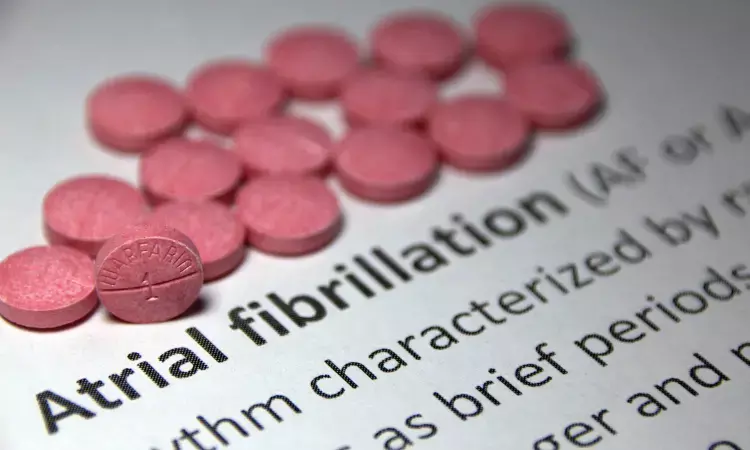- Home
- Medical news & Guidelines
- Anesthesiology
- Cardiology and CTVS
- Critical Care
- Dentistry
- Dermatology
- Diabetes and Endocrinology
- ENT
- Gastroenterology
- Medicine
- Nephrology
- Neurology
- Obstretics-Gynaecology
- Oncology
- Ophthalmology
- Orthopaedics
- Pediatrics-Neonatology
- Psychiatry
- Pulmonology
- Radiology
- Surgery
- Urology
- Laboratory Medicine
- Diet
- Nursing
- Paramedical
- Physiotherapy
- Health news
- Fact Check
- Bone Health Fact Check
- Brain Health Fact Check
- Cancer Related Fact Check
- Child Care Fact Check
- Dental and oral health fact check
- Diabetes and metabolic health fact check
- Diet and Nutrition Fact Check
- Eye and ENT Care Fact Check
- Fitness fact check
- Gut health fact check
- Heart health fact check
- Kidney health fact check
- Medical education fact check
- Men's health fact check
- Respiratory fact check
- Skin and hair care fact check
- Vaccine and Immunization fact check
- Women's health fact check
- AYUSH
- State News
- Andaman and Nicobar Islands
- Andhra Pradesh
- Arunachal Pradesh
- Assam
- Bihar
- Chandigarh
- Chattisgarh
- Dadra and Nagar Haveli
- Daman and Diu
- Delhi
- Goa
- Gujarat
- Haryana
- Himachal Pradesh
- Jammu & Kashmir
- Jharkhand
- Karnataka
- Kerala
- Ladakh
- Lakshadweep
- Madhya Pradesh
- Maharashtra
- Manipur
- Meghalaya
- Mizoram
- Nagaland
- Odisha
- Puducherry
- Punjab
- Rajasthan
- Sikkim
- Tamil Nadu
- Telangana
- Tripura
- Uttar Pradesh
- Uttrakhand
- West Bengal
- Medical Education
- Industry
Apixaban may substantially prevent strokes in patients with device-detected AF

Researchers have found in a new global study that widely available blood thinner apixaban substantially reduced stroke in at-risk patients with a type of atrial fibrillation only detectable by a pacemaker or other implanted cardiac electronic device.
The oral anticoagulant medication, which helps to prevent dangerous blood clots by thinning the blood, reduced the risk of stroke and blood clotting by 37% and reduced fatal or disabling stroke by 49% in individuals with device-detected atrial fibrillation, also known as sub-clinical atrial fibrillation (SCAF). This condition is not easily detectable through standard tests like electrocardiograms, unlike clinical atrial fibrillation.
The study was published on Nov. 12 in the New England Journal of Medicine (NEJM) and simultaneously presented at the American Heart Association Scientific Sessions by lead researcher Jeff Healey, a senior scientist at the Population Health Research Institute (PHRI), a joint research institute of McMaster University and Hamilton Health Sciences.
Healey and a global team of researchers conducted the largest and longest-running study of apixaban for people with device-detected atrial fibrillation. The study involved more than 4,000 participants at 288 sites in 16 countries over eight years.
“While we found an increase in major bleeding, this non-fatal bleeding is usually reversible and most patients recover from it,” says Healey, co-principal investigator (PI) of the study.
“Considering how much more severe and life-altering the strokes prevented by apixaban are, compared to most cases of bleeding, our findings indicate that apixaban should be considered for patients with stroke risk factors who develop device-detected atrial fibrillation,” says Stuart Connolly, a PHRI senior scientist and chair of the study.
Renato Lopes, co-PI of the study, cardiologist, and professor in the Department of Medicine at Duke University School of Medicine says, “Our findings can aid doctors in treating these patients, so they don’t suffer disabling and fatal strokes.”
This global trial was an academic collaboration between the Duke Clinical Research Institute and PHRI, leading research institutes in the area of cardiology and clinical trials. In the rapidly evolving landscape of cardiac monitoring, Healey underscores the study’s far-reaching impact.
“Our findings also have a broader significance,” Healey notes, “as we witness the increasing use of implanted and wearable cardiac monitors, along with consumer devices like the Apple Watch. A future where more at-risk individuals are identified and receive effective stroke prevention treatment is on the horizon.”
Reference:
Jeff S. Healey, Renato D. Lopes, Christopher B. Granger, Marco Alings, Lena Rivard, William F. McIntyre, Dan Atar, David H. Birnie, Giuseppe Boriani, A. John Camm, David Conen, Julia W. Erath, Apixaban for Stroke Prevention in Subclinical Atrial Fibrillation, DOI: 10.1056/NEJMoa2310234.
Dr Kamal Kant Kohli-MBBS, DTCD- a chest specialist with more than 30 years of practice and a flair for writing clinical articles, Dr Kamal Kant Kohli joined Medical Dialogues as a Chief Editor of Medical News. Besides writing articles, as an editor, he proofreads and verifies all the medical content published on Medical Dialogues including those coming from journals, studies,medical conferences,guidelines etc. Email: drkohli@medicaldialogues.in. Contact no. 011-43720751


